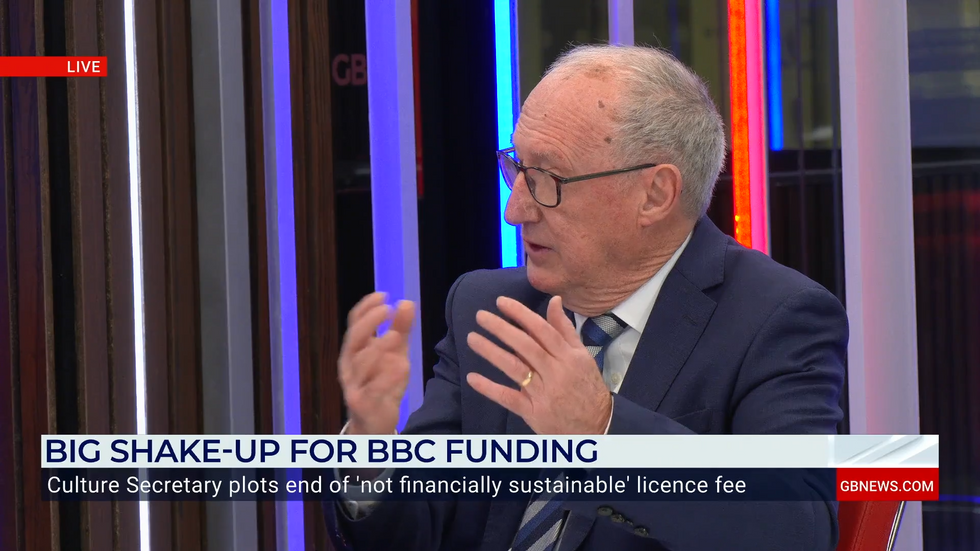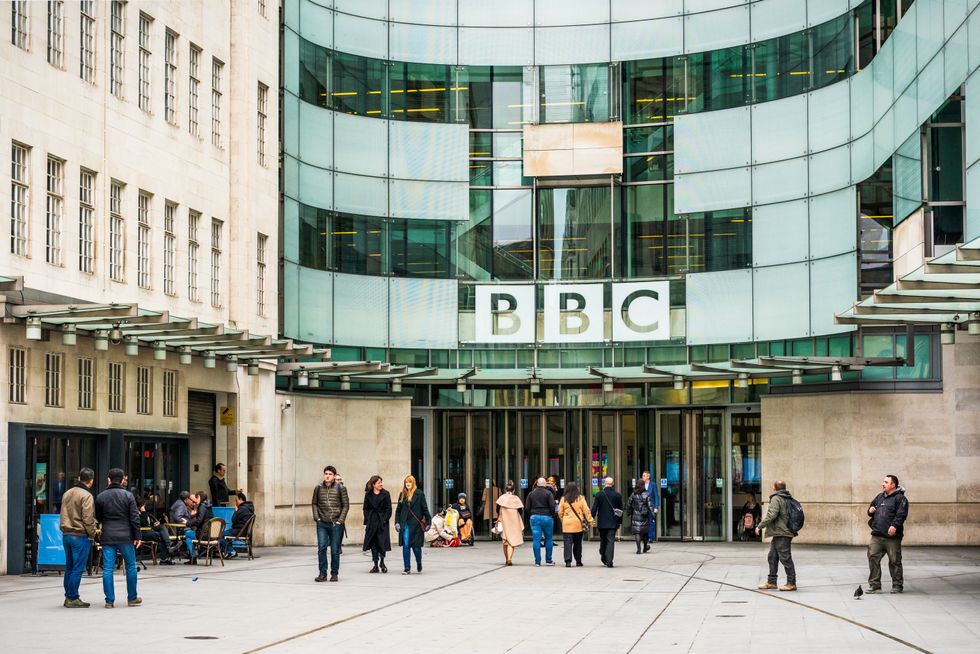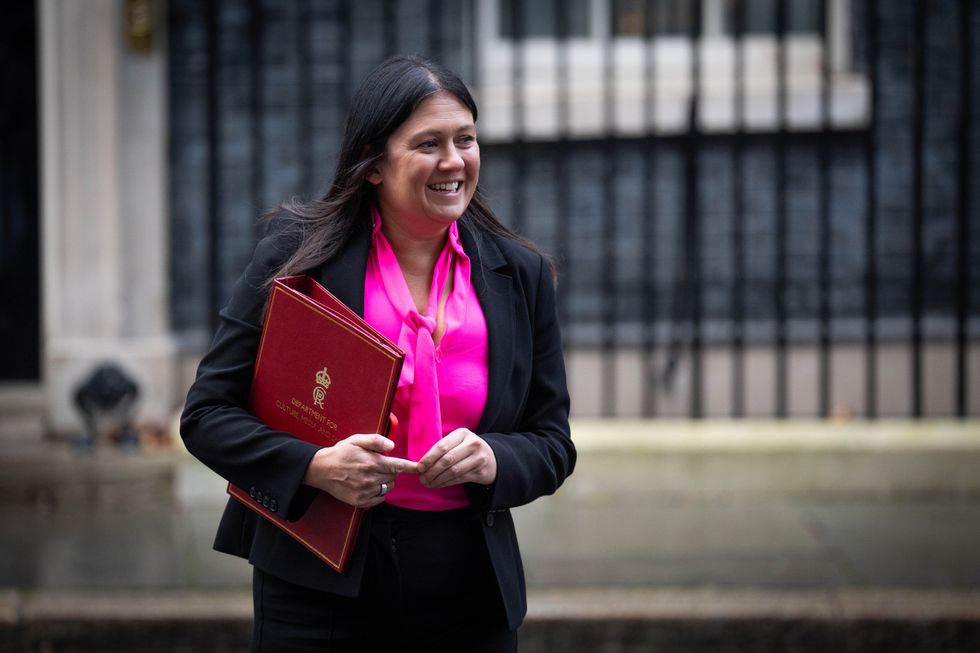Gabrielle Wilde
Guest Reporter
A former BBC presenter has warned that the licence fee "will not last" in its current form, as the broadcaster grapples with plummeting income.
Roger Bolton told GB News that the BBC's income has declined by approximately 38 per cent since 2010, resulting in reduced on-screen content.
His comments come as Culture Secretary Lisa Nandy is thought to be considering plans to scrap the BBC TV licence fee by the end of 2027, replacing it with funding from general taxation.
Bolton said:"It's still up to Government to decide how and where the money will come from.

"So I think there are a lot of people who are attracted by the idea of being able to tell the BBC not to spend as much on their presenters and so on, but when you work it out, I don't think it's worked out properly.
"The fundamental problem is that the BBC's income has gone down about 38 per cent since 2010.
LATEST DEVELOPMENTS
"This is why you see much less on screen. The number of people who don't want to pay the licence fee has also gone up because there's so much increasing. It's a double squeeze."
The proposals would see the abolition of the annual fee when the Corporation's current charter expires in December 2027.
Whitehall sources suggested Nandy has concluded the licence fee must go, though final decisions have not yet been reached.
"Lisa does not believe that the licence fee is financially sustainable," one source told the Sunday Times.

The Culture Secretary and BBC director-general Tim Davie are said to have held initial talks about the broadcaster's future in December.
The annual TV licence fee is set to increase by £5 to £174.50 this April.
The fee will continue to rise in line with inflation each year until 2027, following an agreement made in 2022.
This comes after the charge was frozen for two years at £159 before being increased.

Nandy previously promised "an honest national conversation about the broadcaster's long-term future" and confirmed the licence fee would be maintained until the end of the current Charter period.
The Government has also pledged to extend support for vulnerable households, potentially doubling the number benefiting from payment assistance to 500,000 by 2027.
The BBC faces what sources describe as a "perfect storm" of challenges.
These include falling income from the licence fee and younger viewers increasingly turning to alternative platforms.
Find Out More...
Roger Bolton told GB News that the BBC's income has declined by approximately 38 per cent since 2010, resulting in reduced on-screen content.
His comments come as Culture Secretary Lisa Nandy is thought to be considering plans to scrap the BBC TV licence fee by the end of 2027, replacing it with funding from general taxation.
Bolton said:"It's still up to Government to decide how and where the money will come from.

"So I think there are a lot of people who are attracted by the idea of being able to tell the BBC not to spend as much on their presenters and so on, but when you work it out, I don't think it's worked out properly.
"The fundamental problem is that the BBC's income has gone down about 38 per cent since 2010.
LATEST DEVELOPMENTS
- Marilyn Hawes unleashes furious rant over Labour's decision not to launch grooming gangs inquiry
- Rotherham Labour MP comes out in support of 'locally led' national inquiry
- Inheritance tax and National Insurance raids on Britons slammed by major retailer
"This is why you see much less on screen. The number of people who don't want to pay the licence fee has also gone up because there's so much increasing. It's a double squeeze."
The proposals would see the abolition of the annual fee when the Corporation's current charter expires in December 2027.
Whitehall sources suggested Nandy has concluded the licence fee must go, though final decisions have not yet been reached.
"Lisa does not believe that the licence fee is financially sustainable," one source told the Sunday Times.

The Culture Secretary and BBC director-general Tim Davie are said to have held initial talks about the broadcaster's future in December.
The annual TV licence fee is set to increase by £5 to £174.50 this April.
The fee will continue to rise in line with inflation each year until 2027, following an agreement made in 2022.
This comes after the charge was frozen for two years at £159 before being increased.

Nandy previously promised "an honest national conversation about the broadcaster's long-term future" and confirmed the licence fee would be maintained until the end of the current Charter period.
The Government has also pledged to extend support for vulnerable households, potentially doubling the number benefiting from payment assistance to 500,000 by 2027.
The BBC faces what sources describe as a "perfect storm" of challenges.
These include falling income from the licence fee and younger viewers increasingly turning to alternative platforms.
Find Out More...
